The Cambridge Session
One-week Cambridge Campus Experience
The Cambridge Session is aimed at improving your business knowledge and management practice.
The Cambridge Session
One-week Cambridge Campus Experience The Cambridge Session is aimed at improving your business knowledge and management practice.
Overview
The Cambridge Campus Session includes an introductory course on latest management practice and technology impacts across a range of industries. In particular, these will include healthcare, services, and production, and functions common to all such as finance, human resources, and sales and marketing.
Each day will include a combination of lectures, discussions, and case studies to help participants understand current developments with a special focus on how technology can be used in different management functions. There will also be an active social programme.
The Cambridge Campus Session is an ideal complement to MBA programmes, and it is also available on its own as a standalone course. Participation in the session will be confirmed by a certificate.
Business topics include
- Business development
- Companies: Start-ups to IPO, larger companies
- Public Sector: managing growth
- Organisation structure, development, and processes
- Organisation change and challenges
- The impact and use of Artificial Intelligence
- HR management
- Changing roles and responsibilities
- Financing the Enterprise
- Financial innovation
Management skills include
- Presenting yourself, your organisation, and current challenges
- Brainstorming skills
- Problem-solving skills
Social Programme
There will be an active social programme including
- A walking tour of Cambridge and the colleges
- A visit to King’s College Chapel
- A pub evening
Why Cambridge?
With almost 6,000 technology companies employing over 72,000 people, including 23 unicorns, Cambridge is a top 3 global science and innovation centre and a key part of the UK technology sector, the third largest in the world. As such, it is at the centre of the technology revolution and is home to companies such as Darktrace, Arm, and AstraZeneca. Cambridge has 7 business parks as well as the Biomedical Campus, the largest centre of medical research and health science in Europe.
Cambridge University is 800 years old and comprises 31 colleges, many of them ancient and beautiful.
Next Course Programme
Monday 16th September – Arrive, check-in
Tuesday 17th September – Business development
Wednesday 18th September – Organisation change and processes
Thursday 19th September – HR management
Friday 20th September – Financing the enterprise
Location
Wescott House, Jesus Lane, Cambridge CB5 8BP.
Recommended accommodation: Wescott House and other colleges.
Check-in: Monday 16th September
Check-out: Friday 20th September
Transfer to Cambridge
We will advise upon receiving your flight information.
Airports:
Stansted: 30 minutes by direct train from the airport, 45 minutes by taxi.
Heathrow: 2.5 hours by bus or train (across London) 1.5 hours by taxi.
If you prefer a taxi, we recommend Panther Taxis.
Fee
Regular price: 2400 GBP.
Lunch and refreshments are included. Costs such as evening meals and social activities are extra at the participant’s own expense.
Course Tutors
Cambridge is home to internationally renowned tutors, technologists, and academics. Many are entrepreneurs and have developed and embedded technology in their companies. Here are some of our Cambridge Valid faculty members.
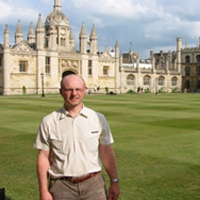
Senior Fellow, Collegium Prometricum
President of Cambridge Valid
Dr Mark Perkins is a dynamic educator in business and academic training, and an expert on business and academic writing, with a particular interest in ChatGPT. Mark is Editor-in-Chief of the journal Cambridge Explorations in Arts and Sciences (CEASC). The inaugural June edition (2023) contains articles dedicated to Artificial Intelligence applications in a number of fields. In his training career, Mark has trained undergraduate students in Italy and Czechoslovakia, postgraduates in Sweden, personnel at all levels from large European companies, senior academics from Polish universities, and European politicians. Sometime lecturer of English in Italy (Bari) and Czechoslovakia (Prague), he was Head of Teacher Training (English) at the Folk University of Sweden. Mark owns MPL with its team of highly qualified teachers and editors. Today, Mark regularly attracts large lecture audiences among Chinese university students and faculty (up to 1,000 participants).
Mark also developed a system for sentiment analysis of free text opinion data (supervising a development team in India) and completed a related sale and license deal with a Canadian company. In addition, he owns a large text database of 30bn words curated from blogs.
Specialising in ethical philosophy, Mark currently publishes articles with Professor Agnieszka Pregowska on the subject of AI and ethics in the medical field.

Brian has 40 years of commercial experience in business management, rising to senior management positions within the IT sector. Founder of a start-up commercialising fitness monitoring technology from the University of Cambridge. Previously Founder/CEO of a start-up company addressing the market for enterprise applications of speech technology. Prior to that CEO of a US/UK hi-tech start-up, with full P&L responsibility, successfully managing the business through to a highly lucrative acquisition by Microsoft. MBA qualified (Cranfield School of Management). Key areas of competence comprise: a) business planning; b) business development (including active involvement in sales and contract negotiations); c) marketing; d) staff recruitment, training, management and motivation; and e) raising investment and corporate restructuring.
Brian has also worked for over 10 years as a core member of the International Outreach team at University of Cambridge Enterprise, supporting innovative researchers across the world. He also trains university students from China on their AI summer school in Cambridge.
Brian is also currently a founder manager of the AI startup Maxapiens.
https://www.maxapiens.com/home
Course topics covered
Brian takes a case study approach across many sectors regarding business development. These include
- SME business development
- Research commercialisation
- Evolution of AI technology & applications
- Case study of AI in the corporate context
Robotic Process Automation

Tom Ling has over 25 years of experience in designing, managing and delivering evaluations. He is a senior research leader at RAND Europe where he is head of evaluation. He leads evaluations and applied research focused on the key challenges facing organisations in health, well-being, and international development. Before re-joining RAND, Ling was head of Impact Innovation and Evidence at Save the Children where his responsibilities included ensuring that evaluations contribute to policy and change in the challenging environment of international development. Prior to Save the Children, Ling spent ten years at RAND Europe as director for Evaluation and Performance Audit following four years as senior research fellow at the National Audit Office in the UK. Before that he taught and researched in various universities.
He has over 20 years’ experience contributing to research projects with the European Commission, Save the Children, UK government departments, the National Audit Office, the Health Foundation in the UK and many others. He has published widely on evaluation, accountability, and related topics. He recently co-edited Performance Audit: Contributing to Accountability in Democratic Government (London: Edward Elgar), following his Performance Audit Handbook and The Evidence Book, a critical examination of the use of evidence in public policy and service delivery. He is a senior research associate with Cambridge University and a Professor (Emeritus) with Anglia Ruskin University.
Tom is also President of the European Evaluation Society (https://europeanevaluation.org/).
Course topics covered
- Evaluation of management processes
- The uses (and risks) of theories of change
- Developing together an evaluation and monitoring framework
- A brief introduction to some core uses of evaluation: accountability; ‘proving something works’; improving what is working; adaptive management
Risks to be aware of when using evaluation
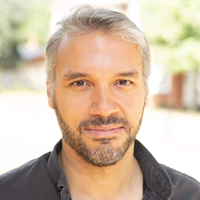
Member of the Leverhulme Centre for the Future of Intelligence, Cambridge University
Co-Founder and Chief Technical Officer of Iceberg Bio, Victor works to improve data management in healthcare, with a focus on tightening the integration of research and “real world” application. He believes that artificial intelligence could greatly improve human efficiency and efficacy, but more work must be done investigating the ways in which it complements (or disrupts) human workflows, specifically the human factors psychology underlying its design, development, and daily use. He has advanced degrees from the University of Toronto and Cambridge University in the field of Philosophy of Science, with a specialisation in digital tool use (both traditional and ”smart” systems) and their interactions with individual or collective cognitive processes.
Outside of his research, Victor is a full stack software developer and is involved in a number of software and engineering projects, such as the development of adaptive interfaces for clinical decision support systems, and portable hardware solutions to support mobile ad hoc networks for use in disaster relief. Over the past 20 years, he has developed numerous award-winning electronic and software solutions spanning industries as diverse as clinical trials, early childhood education, and humanitarian response.
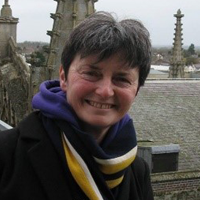
Patricia studied French and German at Lady Margaret Hall, Oxford University. She later took a Certificate in English Language Teaching to Adults and a Diploma in Teaching Foreign Languages to Adults. After university, Patricia worked in the printing and publishing industry as Typesetting Account Manager for Computer Weekly. She then moved to IBM where she was a Systems Engineer specialising in end-user systems within the insurance industry. Patricia has since spent over 20 years in education. Her teaching has focussed mainly on business communication in English for non-native speakers, but she has also taught IELTS as well as German, Spanish, and French, and is an expert facilitator for courses of all types.
As a materials writer, she has produced many seminars for Cambridge assessment on the subject of their main suite exam offerings, and contributed to several of their exam preparation publications. One example is the Cambridge English publication Business Benchmark Teacher’s Resource Book
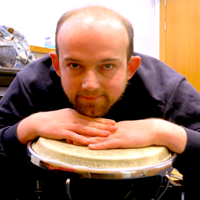
Willem has a BA in musical performance (percussion) and an MA in Music Therapy. He is interested in how artificial intelligence can be used in therapeutic interventions and patient data collection and analysis. As a qualified music therapist, he is currently working in a long-term project jointly conducted by the Cambridge University Autism Research Centre led by Professor Sir Simon Baren-Cohen and the Cambridge Institute for Music Therapy Research (CIMTR) at Anglia Ruskin University. The goal of the project is to assess the impact of music therapy on autistic children and involves significant data collection. He is also interested in the use of AI in music therapy and other therapy professions.
Course topics covered
- Corporate wellbeing
- Music therapy in the workplace
- Developments in therapy in professional contexts
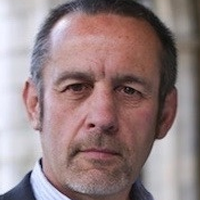
Mark Robinson, Managing Director of St Andrews Lean Consulting, began his career in Lean process improvement at the University of St Andrews, Scotland, one of the earliest adopters of Lean in the UK university sector.
He now has over 17 years experience of the practical application of Lean, delivering Lean training, facilitating Lean process improvement events, and advising on the establishment of Lean programmes.
Mark’s clients come from a range of sectors including charity, government, health, higher and further education, law, medical research, philanthropy, and retail. They can be found around the globe in countries such as Australia, Ghana, Ireland, Malaysia, New Zealand, Saudi Arabia, the UK, and the USA.
Half-day programme:
Title: Introduction to Lean process improvement
Overview:
An interactive session where students will learn about the key concepts of Lean process improvement. The session includes discussion of a process improvement model and a selection of easily applied tools and techniques. The central themes of Lean philosophy are not restricted to process improvement as they can equally be applied to everyday managerial situations.
Content:
Defining Lean
The 2 Fundamentals
The 5 Principles
The 8 Wastes
A model for process improvement
Selected tools and techniques
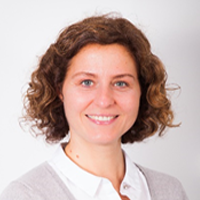
Dr Sandra Romenska is a Senior Lecturer in leadership and leadership development at the University of St Andrews Business School in Scotland, UK. She also teaches Human Resource Management for the MBA programme of the American University in Bulgaria as a visiting academic. Dr Romenska has experience delivering leadership programmes to a wide range of national and international public and private organisations. She has been an invited speaker at many global forums, including the Project Management Institute Global Congress, the World Universities Forum at Davos, UNESCO, Fulbright. Dr Romenska has managerial experience in the non-government, public and charity sector after working with Save the Children-UK, and at various leadership posts in higher education institutions. She has an MA from the University of Warwick and a DPhil from the University of Oxford.